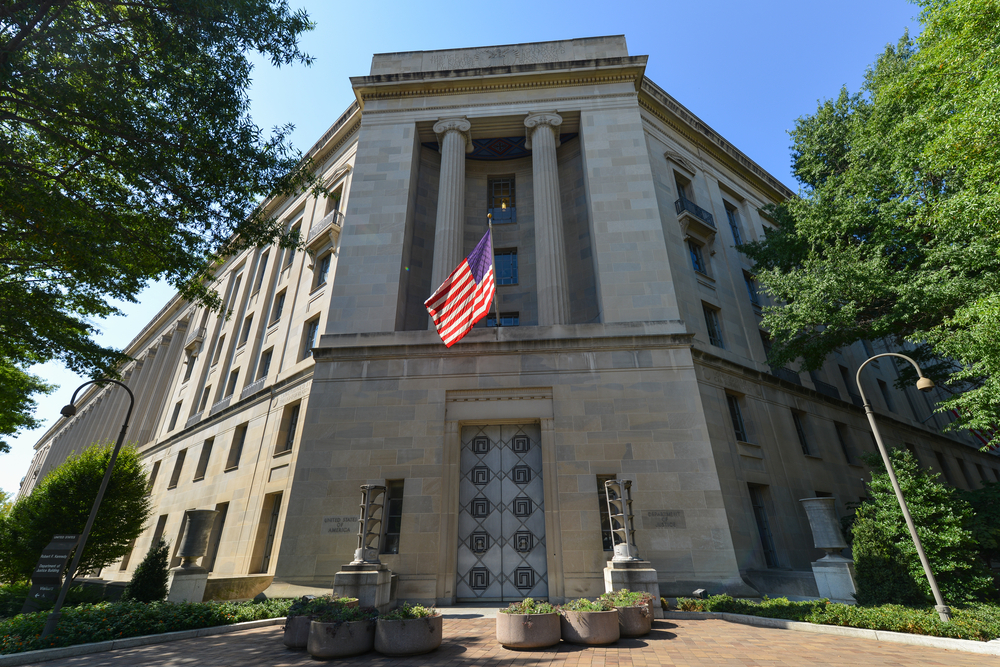AG Barr says Justice Department may support lawsuits if states go too far in COVID-19 constraints

The Department of Justice building in Washington, D.C. Photo from Shutterstock.com.
U.S. Attorney General William Barr said Tuesday the Department of Justice will consider supporting lawsuits when states go too far in restricting commerce and civil liberties in the fight against COVID-19.
Barr talked about the DOJ’s role in an interview with radio talk show host Hugh Hewitt, report Bloomberg, NBC News and NPR.
Barr said COVID-19 shutdown orders were imposed for the limited purpose of bending the curve, not as a comprehensive way to fight COVID-19, according to a transcript. Now that shutdowns are slowing the spread of the virus, more targeted approaches are needed, he said.
Hewitt asked Barr whether citizens could file lawsuits against governments that fail to reduce restrictions, either under the takings clause or Section 1983 of the Civil Rights Act.
Barr replied that the first line of defense for people is the political process in their states.
Barr added, however, that if people sue, the DOJ will “look at it at that time. And if we think it’s, you know, justified, we would take a position. That’s what we’re doing now. We, you know, we’re looking carefully at a number of these rules that are being put into place. And if we think one goes too far, we initially try to jawbone the governors into rolling them back or adjusting them. And if they’re not and people bring lawsuits, we file statement of interest and side with the plaintiffs.”
Barr said the DOJ had already filed a statement of interest in a lawsuit by a Greenville, Mississippi, church over a ban on drive-in church services. The city council later revised its order to allow drive-in services, as long as people keep the windows rolled up, the Delta Democrat-Times reported.
Hewitt also asked Barr about the possibility of retirements by Supreme Court justices.
“Is there anything in your vast experience as attorney general twice that would prohibit a Supreme Court justice from conditioning their retirement upon the confirmation of a successor by a time certain?” Hewitt asked. “In other words, a contingent retirement?”
“Well, I’m not sure why they would do that, since there are other ways of skinning that cat,” Barr replied. “But you know, I haven’t looked at that, so I’m not going to try to give an off-the-top-of-my-head opinion on it.”



